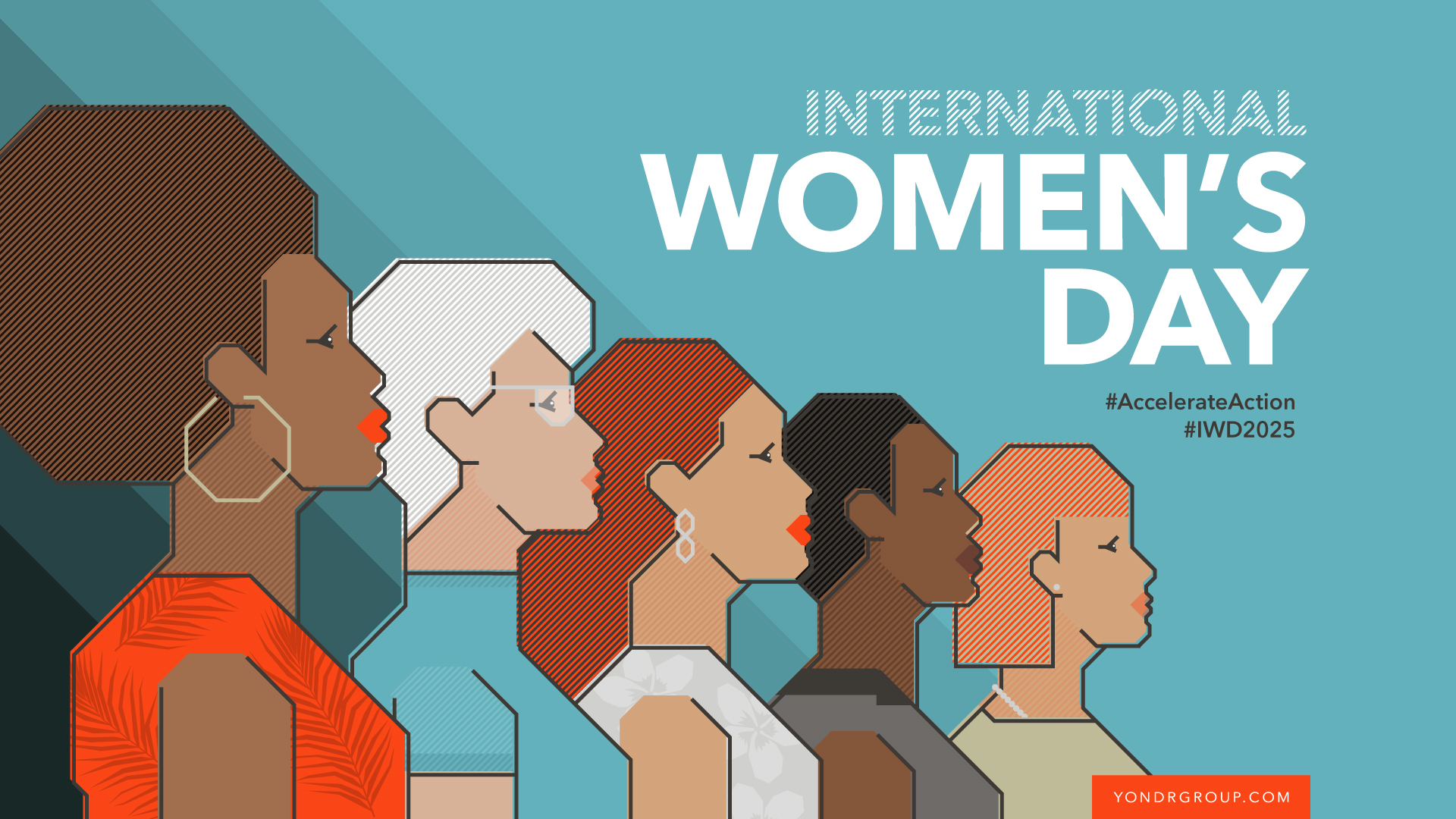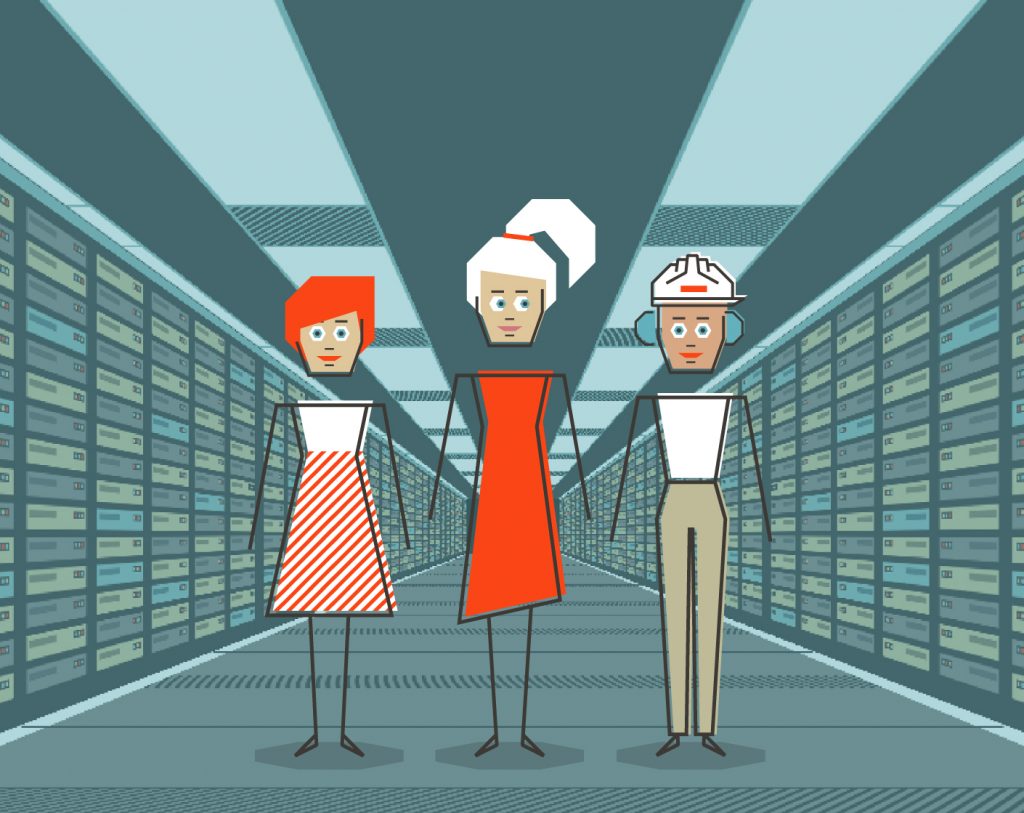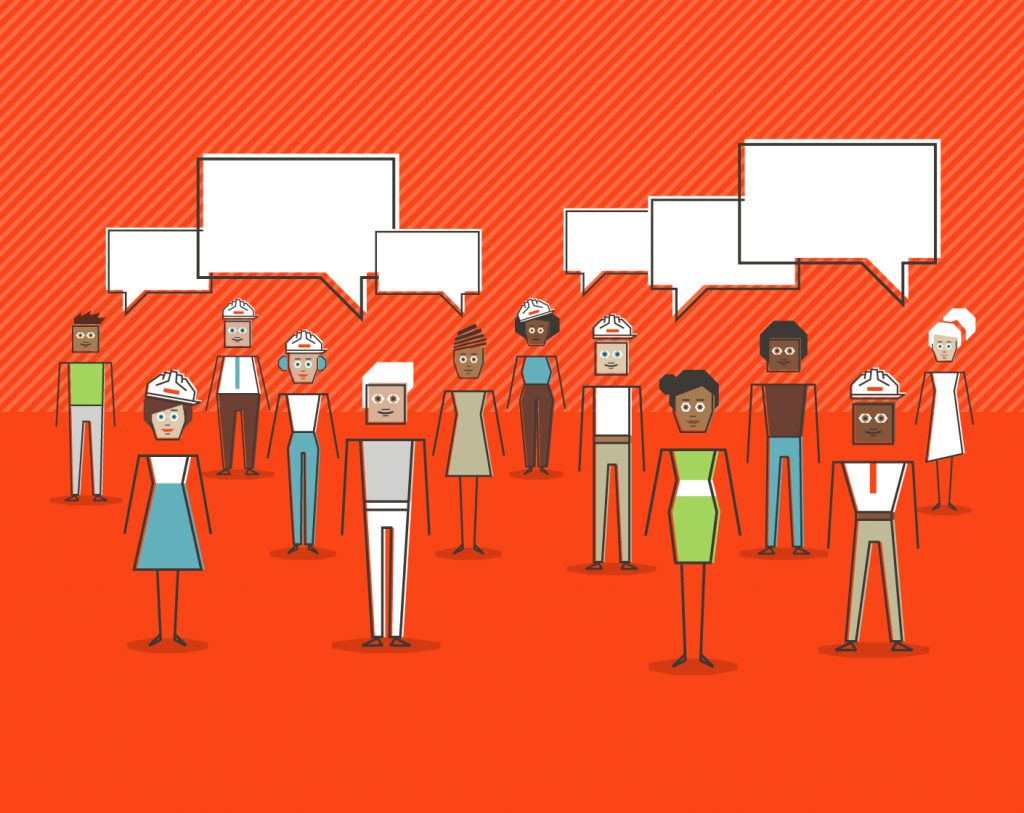Yondr-ites’ thoughts about diversity and inclusion on International Women’s Day

This week, we’ve gathered the voices of our incredible Yondr-ites across the company to share their thoughts on navigating a male-dominated industry, the steps being taken to foster inclusivity, and what still needs to change to really level the playing field. Let’s take a look below for some fresh insights and themes we uncovered from our interviews.
Sharing our experiences
For David Eames, VP Client Solutions, it’s an issue very close to home. His wife works in the data center industry and has experienced first-hand the extra mile she has to go to gain a sense of equality in her engineering career.
David says: “She’s had to work harder than her male counterparts. Every single room she enters, she has to prove her worth. That’s the first thing she has to do.
“This has 100% impacted how I approach work. I assume everyone has the right to be in the room regardless of their demographic.”
Challenging underlying biases
Our HSE Director in APAC, Juliane Blohme, has had similar experiences in her career and notes how she’s felt “the underlying biases”.
Juliane adds: “As I got older, I realised I had to fight three times harder than my male colleagues to be taken seriously. I often had to justify my instincts and ability to read between the lines.
“I know I have to be exceptionally good at what I do and advocate for myself more than my male counterparts. That takes a lot of self-confidence.
“One of the biggest misconceptions about women in construction and data centers is that we don’t have the technical understanding or that we’re too soft for the tough on-site environment. But I strongly believe that in high-pressure environments, respect and competence matter more than gender.”
Respecting diverse perspectives
Our Strategic Negotiations Lead Soumaya Graine agrees that respecting diverse perspectives is crucial.
“A key challenge I’ve observed and encountered is when these are seen as a threat rather than a strength, often due to a lack of tools to navigate differences,” she says. “I’ve found strong leadership that aligns towards a common goal transforms these differences into valuable drivers of progress.”
And Romy van Wezel, Workplace Services & Travel Manager, is more than happy to stand up for those principles.
“I’m a very open-minded person and always try to understand someone else’s perspective,” she says. “Working in especially male-dominated industries, I’ve always looked up to women at senior leadership level and had open conversations about their experience while learning from them.
“They’ve taught me to not be afraid to speak up but to also be prepared for things you might not like to hear or behaviour you might not like but knowing how to navigate it. You know your worth and don’t let anybody, man or woman, tell you otherwise.”
What needs to change?
Juliane says the data center sector still has a long way to go to achieve equality: “I’ve only been in this industry for three years, and I haven’t seen much change in gender diversity. The majority of leadership positions are still held by men. However, since I work in tech, I do see more awareness around diversity, particularly driven by DEI (diversity, equity and inclusion)-orientated hyperscalers.”
What’s being done?
On the subject of progress, what actions have Yondr-ites seen or taken to help create a more inclusive workplace?
David has seen a shift towards women being represented at senior levels while noting that supply chain is yet to follow the trend.
He also keeps diversity front of mind, especially when it comes to recruiting engineers, saying: “There’s a very specific route to becoming an engineer as a man – and because of my unconscious bias, when I was writing job descriptions I used to ensure that those applying had to have this specific set of skills/requirements to get an interview. Now, I consider different routes and experiences – not just the industry norm.”
Banishing bias
When it comes to recruitment bias, David comments that: “As humans, we recruit people as a mirror of our own skills. As a result, as a man, you mirror people who are like you – but we should challenge ourselves to recruit people with a diverse skillset as opposed to a reinforcement of current skillsets which narrows capabilities.”
Romy agrees: “There is progress and more encouragement for women to join the industry which should start at education level. I had no clue this whole world existed when I was still in school! It needs to start there, opening those doors to encourage women and minority groups that there’s a whole industry that needs their talent.”
Juliane advocates for organisations introducing graduate programmes specifically designed to support women towards holding key technical roles.
“What drives me is the belief that organisations and societies benefit when women are in leadership,” she says. “The qualities often labelled as ‘soft’ or ‘emotional’ in women – empathy, collaboration, caution – are actually strong leadership skills. I want to see more of these strengths in key positions.”
As Soumaya elaborates: “There’s been a positive shift towards attracting talent with diverse experiences, but even more needs to be done to bring in professionals from outside the industry itself.
“While industry knowledge is valuable, a broader range of experiences is just as crucial for driving innovation and problem-solving, especially as the digital infrastructure sector continues to evolve.”
Inspiring Young Minds
Our Workplace Director Wendelien Wijsman believes the key to progress lies in young people’s choice of study.
“Look at the percentage of female students in technical subjects and I feel this will represent the lack of gender-related diversity in our industry,” she says. “How to get female students acquainted with and interested in technical studies is the real question.”
Wendelien credits her childhood with shaping her approach: “It was clear my mother was the boss in our family and so for me it was normal to watch a woman standing her ground next to a man… and my father was the most unbiased and open-minded person I’ve ever known. Always friendly and welcoming to anyone he met; he had all sorts of friends and relations in his network.”
A keen rower, Wendelien enjoys the chemistry of men and women working together on an equal footing. Like the coxswain guiding the crew, she says: “I don’t really think about people in gender terms. We’re all human beings and need respect and attention, no matter what gender.”

